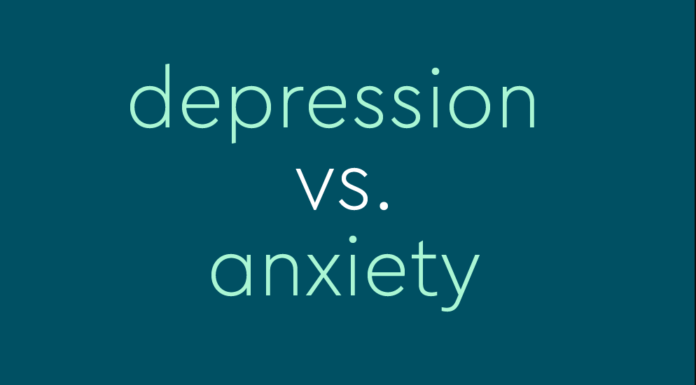Everyone has a different level of fear, ranging from a queasy feeling to violent waves of fear with significant physical discomfort. There are two forms of anxiety disorder, the fear of a particular object or a situation. Anxiety attacks without a specific trigger. Inappropriate anxiety that persists for a long time can indicate an abnormal anxiety disorder, leading to depression.
Depression is often accompanied by anxiety disorders, phobias, or panic disorders. Conversely, depression is often the cause of an anxiety state. Depression is a severe mental disorder that occurs at any age. Unspecific early symptoms often precede depression. These possible early symptoms can appear without cause or reaction to stressful events and slowly expand over time.
Possible early signs of depression include:
- Pain (non-specific headache or abdominal pain)
- constant fatigue, lack of energy
- decreasing sexual interest
- Irritability, anxiety
- increasing listlessness, apathy
- disgruntled mood
- Sleep disorders
- Loss of appetite
Causes Of Depression
It is not clear what causes depression, but it is probably a complex disease involving several factors related to heredity, biology, life events, and background and habits.
Genetic
Long-term studies of families with a history of depression may be a risk factor.
Biology
Although the brain’s biology is complicated, people with depression show a deficit or an imbalance of certain neurotransmitters such as serotonin. These imbalances disrupt communication between neurons. Other problems, such as hormonal disturbance (hypothyroidism, taking birth control pills), can also contribute to depression.
Environment And Lifestyle
Poor lifestyle habits and living are likely to affect the psychological state profoundly. For example, the build-up of stress at work can lead to burnout and, ultimately, depression.
Life Events
The loss of a loved one, divorce, illness, loss of a job, or any other trauma can trigger depression in people predisposed to the disease. Likewise, ill-treatment or trauma experienced in childhood makes depression more susceptible to adulthood, mainly because it permanently disrupts the functioning of specific stress-related genes.
Causes Of Anxiety
The leading causes show up in different forms, like phobias, panic disorders, or generalized anxiety disorders. Very often, pathological fears are associated with depression, obsessive-compulsive disorder, or other mental illnesses. Deep-seated, permanent worries can also be the result of traumatic experiences and post-traumatic stress disorder symptoms.
Symptoms Of An Anxiety Attack Include:
- Sweats
- Heart palpitations
- Hyperventilation
- Tremble
- Shortness of breath
- dizziness
- Nausea, vomiting
- Feelings of depersonalization and derealization
Different Forms Of Anxiety Disorder
- Agoraphobia is where patients avoid places such as large squares or where many people gather.
- Those affected often suffer from great fear, although there is no threatening situation.
- Generalized Anxiety Syndrome People with this syndrome feel anxious and suffer from excessive worry that cannot be controlled.
- People living with social phobia avoid encounters with other people out of fear.
- Specific phobia, patients are afraid of certain situations and objects. The best-known examples of this are fear of heights or animals.
Treatments For Depression And Anxiety
Depression and anxiety affect both mental, physical well-being and the entire environment of those involved. Treatment helps reduce the symptoms and shorten the duration.
Treatment options include behavioral, depth, psychological, or analytical therapy methods. To help diagnose an anxiety disorder, doctors first rule out physical causes for the symptoms through blood tests or EKGs.
Therapy:
Many people benefit from psychotherapy, also known as therapy or counseling. Most treatments last for a short time and focus on the thoughts, feelings, and problems the person is having in their life today. Understanding the past helps you find ways to handle issues in your life and help you cope and prepare for future challenges.
Talking to a psychotherapist can often get to the bottom of the cause of the anxiety disorder. In therapy, learning skills are learned to help manage, change behaviors that cause the problems, and find solutions. Some common therapy goals include the following:
- Improve health
- Stop smoking, and use drugs and alcohol.
- Overcome fears and insecurities.
- Manage stress.
- Understand past painful events.
- Identify things that make depression worse.
- Improve relationships with family and friends.
Medicines:
Many people with depression or severe anxiety find that taking prescription medications, called antidepressants, improves their mood and coping skills. There are several antidepressant medications, options to choose from. Sometimes it takes several tries to find the best medicine and the correct dose

